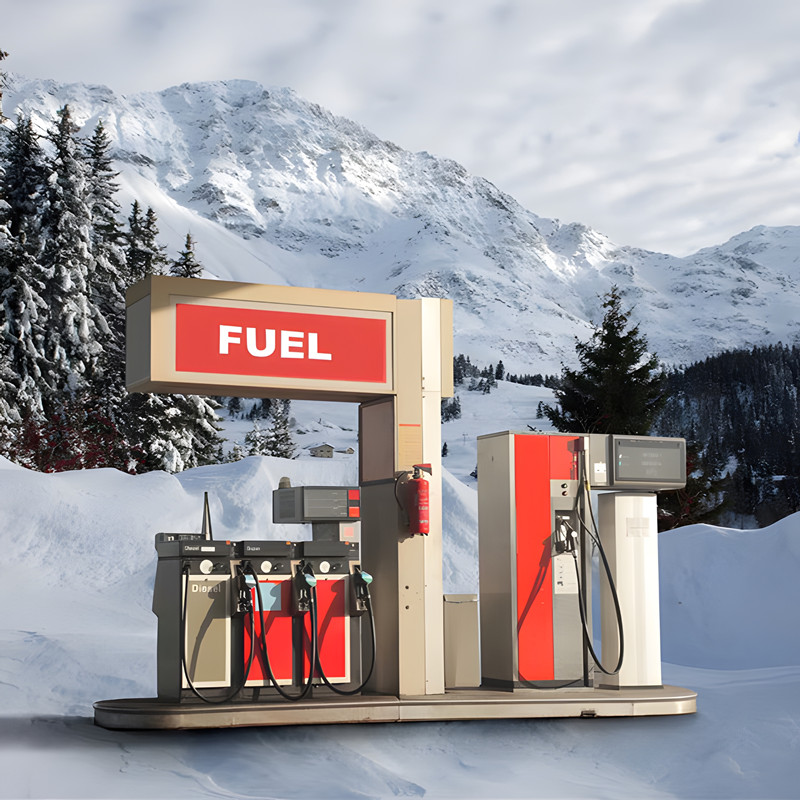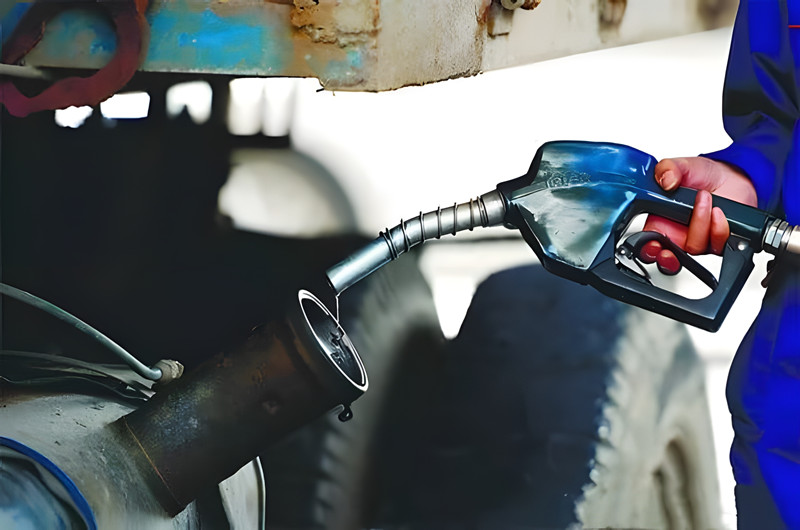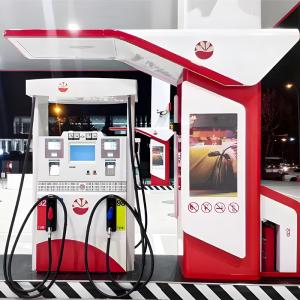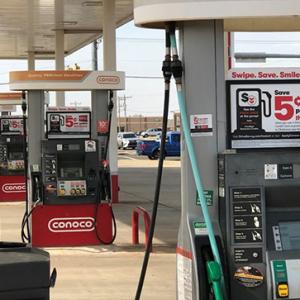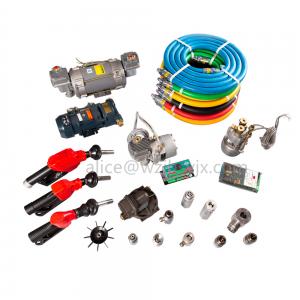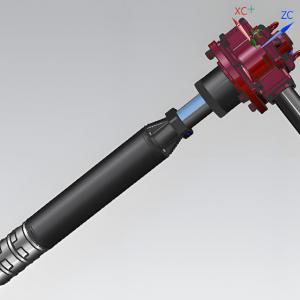How to Prevent and Treat Diesel Fuel Waxing in Winter?
Winter's Invisible Killer: What to Do About Diesel Gelling and Waxing
It's a frigid winter morning. You head out to your diesel-powered vehicle, full of energy and ready to start the day. You turn the key, but the engine just won't fire up. Behind this frustrating scene, an "invisible killer" is likely at play: diesel gelling or waxing.
This common winter problem happens when the fuel itself thickens and clogs the fuel system, preventing your engine from getting the clean, consistent supply it needs. This isn't just a nuisance for vehicle owners; it's a serious challenge for gas station operators, too. This article will dive deep into the causes of diesel gelling and provide a comprehensive guide on how to prevent and solve the problem. We’ll also take a professional look at how this issue impacts key gas station equipment, such as the diesel fuel dispenser and diesel flow sensor.
1. Demystifying Diesel Gelling: What Exactly Is It?
To understand why diesel gels, you need to know what it's made of. Diesel fuel contains paraffin wax. When the temperature drops to a certain point, this wax begins to separate from the liquid, forming tiny crystals. As these crystals cluster together, they clog the fuel filter and lines, preventing fuel from flowing properly. This process is commonly referred to as "gelling" or waxing.
Two key metrics are used to measure a diesel fuel's cold-weather performance:
-
Cloud Point: This is the temperature at which the wax crystals first begin to form, making the fuel appear cloudy.
-
Cold Filter Plugging Point (CFPP): This is the lowest temperature at which the fuel can still pass through a standard filter. Once the temperature drops below the CFPP, the fuel system is likely to clog, and the vehicle will stop running.
2. The Impact on Diesel Drivers and How to Prevent It
For diesel vehicle owners, the consequences of gelling are immediate and severe.
-
Difficulty Starting: A gelled fuel filter will prevent fuel from reaching the engine, making it impossible to start.
-
Decreased Performance: Even if the engine starts, a partially clogged system can lead to an insufficient fuel supply, resulting in a noticeable loss of power and poor engine performance.
Fortunately, these problems are preventable.
-
Use Winter-Grade Diesel: The most effective prevention method is to use the correct seasonal fuel. Fuel suppliers blend different grades of diesel for winter to ensure they perform well in cold temperatures. Diesel is available in different grades (-10, -20, etc.), each designed for a specific temperature range. Switching to the appropriate winter-grade diesel before the cold weather hits is essential.
-
Add Anti-Gelling Additives: If you're concerned about gelling, a high-quality anti-gelling additive can be a great backup. These additives work by modifying the shape of the wax crystals, preventing them from clumping together and clogging the fuel system.
-
Smart Vehicle Management: In extremely cold conditions, parking your vehicle in a warm garage can make a huge difference. For those without a garage, an engine block heater or a fuel tank heater, which can be part of a specially designed diesel gas tank, can keep the fuel warm enough to prevent gelling.
3. The Gas Station's Challenge and Equipment Solutions
Gelling isn't just a concern for drivers; it's a major operational challenge for gas stations.
Challenges for the Diesel Fuel Dispenser
-
Clogging Risk: If diesel in the underground tanks or supply lines gels due to low temperatures, it can clog the internal filters and piping of the diesel fuel dispenser, rendering the pump inoperable.
-
Measurement Errors: Gelling can also affect the accuracy of the diesel flow sensor. The increased viscosity of the fuel can disrupt the meter's function, leading to inaccurate readings and customer dissatisfaction.
Challenges for the Diesel Fuel pump Transfer System
-
Pump Damage: A diesel Fuel pump transfer system must work harder to move viscous, cold fuel. This increased workload can cause the pump to overheat or fail prematurely.
-
Reduced Efficiency: The pump's efficiency drops significantly when it has to handle fuel that is thicker than it's designed for, leading to slower fueling times for customers.
Professional Solutions
-
Regular Maintenance: Proactive maintenance is key. Before winter, gas station operators should perform a thorough check of all diesel fuel dispenser and diesel fuel pump transfer systems. This includes replacing filters and checking that any system heaters are working correctly.
-
Specialized Equipment: Our professional equipment is designed to handle this challenge. We offer diesel fuel dispensers with built-in heating systems, and our diesel flow sensors are engineered with low-temperature materials and precision designs to maintain accuracy even in harsh conditions. Our diesel fuel pump transfer systems are built to withstand the rigors of cold weather and high viscosity, ensuring reliable performance all winter long.
4. Frequently Asked Questions (FAQ)
-
Q: What should I do if I mistakenly fill my tank with regular diesel in cold weather?
-
A: The best thing to do is to immediately add a high-quality anti-gelling additive. If possible, move your vehicle to a warm location. If the fuel has already gelled and the vehicle won't start, you will need to contact a mechanic.
-
-
Q: Can gelled diesel be used again?
-
A: Yes. Heating the fuel will melt the wax crystals, allowing the fuel to flow again. However, this process can affect fuel quality, so it's always better to prevent gelling in the first place.
-
-
Q: How can I tell if a gas station's diesel is gelling?
-
A: Reputable gas stations will offer diesel that is compliant with local climate standards. However, if you notice that the fuel is dispensing much slower than usual from the diesel fuel dispenser, it could be a sign that the fuel is starting to gel.
-
Conclusion: Winter-Proofing Starts with Preparation
Diesel gelling is a preventable and manageable issue. The key is preparation and proper procedures. By understanding the science behind gelling and taking the right preventative steps, you can ensure your vehicle and your fueling equipment run smoothly all winter long.
Remember, protecting your diesel gas tank with the right fuel and a well-maintained diesel fuel dispenser is not just about avoiding a winter breakdown; it's about ensuring safety and efficiency for everyone.
-
For vehicle owners: Check your diesel gas tank and switch to the correct winter-grade diesel now.
-
For operators: Make sure your diesel fuel dispenser and diesel fuel pump transfer systems are winter-ready.
-
Contact us: Learn how our professional equipment can help you navigate the winter safely and efficiently.
